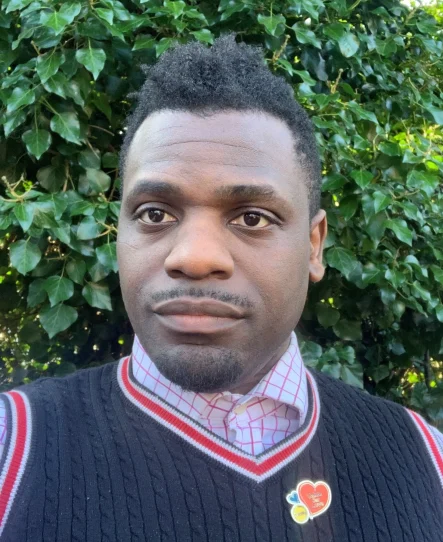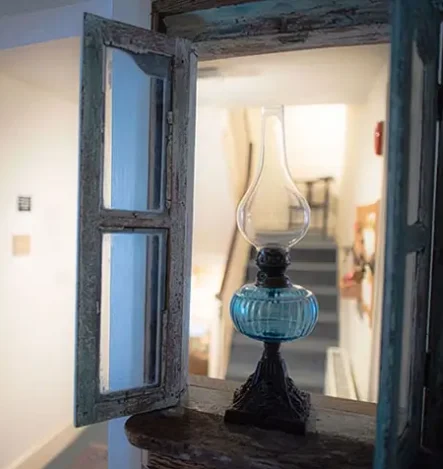Why Choose Me?
This is an excellent question. The fact that you’re asking it means you’re serious about finding the right support—and that tells me we’re already on the same page.
I made a promise when I started working in counselling: never to offer guidance I don’t truly believe in or practice myself. Everything I share is real, honest, and grounded in lived experience. I’ve always struggled with people who preach personal growth but don’t embody it themselves. Every year, I choose one word to guide my decisions, and for the last four years, that word has been integrity. That’s how seriously I take the responsibility of walking alongside someone in their healing journey. With me, you’ll always know that I practice what I preach.


Personal Background and Professional Development
For the last seven years, I have immersed myself in understanding the human experience—reading three books a week on mental health, success, relationships, spirituality, psychology, resilience, and personal growth. I believe that life isn’t one-dimensional, and neither is therapy. Everything is connected. Struggles in one area often stem from unresolved issues in another. Healing is a process of unravelling, rebuilding, and rebalancing.
I don’t approach counselling as a set of textbook strategies. I bring a unique perspective shaped by my own life. I was raised in a complex family dynamic—born in Uganda, moving to the UK as a child, and navigating a world that felt completely different from what I had known. I grew up in a mixed-race family, in an environment where cultural and religious tensions often played out in personal relationships.
Life has shaped me in ways no degree ever could. My biological father passed away just two weeks before I was meant to meet him at age seven. When I moved to the UK in 2001, I was one of the few Black children in my school in Exeter and faced relentless bullying for my accent and background. These experiences didn’t just toughen me up—they taught me empathy, resilience, and the importance of having someone who truly listens.
Empathy, Wisdom, and Life Experience
I am not some distant therapist who only understands struggles through theory. I have lived them, and I understand what it’s like to feel lost, to battle self-doubt, and to push through when life feels like it’s working against you. When we work together, I won’t just rely on psychological techniques—I will also draw from life experience, wisdom, spirituality, and common sense. Not everything can be solved by logic alone. Some challenges require patience, self-exploration, and allowing life to reveal the answers in time.
For example, faith can be a source of strength, but prayer without action won’t change your circumstances. Therapy is the same—you don’t just talk about your struggles; you take steps to work through them. Healing is a process, not a quick fix.

The Path to Counselling
I never set out to be a counsellor. In fact, I doubted whether I could do this work because I didn’t have a master’s degree or a traditional academic background. But life had other plans.
One day, while working in a bar with a friend, a man walked in, sat in front of me, and said, “I murdered someone 20 years ago. I just got out of prison today.” He then ordered his first beer. My friend turned to me and said, “Do you ever notice that people tell you things they wouldn’t normally tell a stranger?” It wasn’t until that moment that I realised—it had been happening for years. People trusted me with their deepest truths, and I had a natural ability to hold space for them. That was the moment I knew counselling was my path.
A Holistic Approach to Therapy
I’m here to help you understand yourself, break family cycles, and equip yourself with the tools to face your challenges head-on. This isn’t just about getting by—it’s about stepping into who you truly are.
I take this work seriously because I know what’s at stake. If you’re ready to put in the work, I’ll walk with you every step of the way.
Do You Work With Autistic Clients?
Yes, I work with autistic clients and understand that traditional talk therapy is not always designed with neurodivergent individuals in mind. Many autistic people face significant barriers to accessing and engaging in counselling, from sensory sensitivities and communication differences to a lack of understanding from practitioners. I strive to create a therapeutic environment that is flexible, validating, and adapted to individual needs.
I recognise that:
- Accessing therapy can be challenging – I provide clear information about what to expect and offer flexibility in communication methods to suit individual preferences.
- Communication styles differ – I do not rely on neurotypical assumptions about emotions or social cues. Instead, I work collaboratively to establish a communication style that feels natural and effective for each client.
- Therapy should be adaptable – My approach is not about making clients ‘fit’ a particular model of therapy but about adjusting my methods to suit their needs, whether that means structuring sessions differently, reducing reliance on verbal expression, or focusing on practical solutions. I also have a box of fidget toys which you are welcome to use. If you feel like you would like a blanket that is absolutely fine. If it is easier to start online and down the road move to face to face, we can also do this.
- Autistic identity matters – I approach therapy with an understanding of neurodiversity and the social model of disability. My role is not to ‘fix’ autism but to help clients navigate their unique experiences, challenges, and strengths in a way that is affirming and empowering.
If you’re autistic and considering therapy, I welcome an open conversation about how we can make the process work for you. Therapy should be a space where you feel safe, understood, and supported—not one where you need to mask or conform to neurotypical expectations. I will do my best to meet your specific needs. I strongly believe that being autistic should not be a barrier to accessing the same level of support as everyone else. This belief is one of the reasons I started my practice. To me, every client is equal—people simply have different requirements, and I am committed to accommodating them.
Why Is Your Practice Aimed at Boys and Men?
While my practice is open to everyone, I chose to focus on boys and men because I saw a clear gap in support. When working for one of the UK's largest online mental health companies, I delivered workshops across South West London—in grammar schools, private schools, youth clubs, colleges, and universities. I also spoke to professionals in mental health, including social prescribers, safeguarding leads, school nurses, and others.
It quickly became apparent that the vast majority of people supporting boys and men were women. Yet, despite increasing awareness of mental health, suicide rates for boys and men continued to rise. Even though I was encouraging them to attend therapy, they simply weren’t coming. I had to ask myself: What was I doing wrong?
I noticed that while girls were signing up for therapy, boys were not. Research confirmed my observations—most therapists are women, and most therapy clients are also women. Additionally, the majority of psychological research is conducted by women, from master's to PhD level. This made me realise that the field of therapy, as it stands, was not truly designed with boys and men in mind.
I wanted to change that. Locking boys and men in prisons isn’t working. Institutionalising them isn’t working. What does work—what we know from research and experience—is empathy, kindness, compassion, and truly listening to their struggles. When boys and men receive genuine support, they typically improve.
This is why I founded my practice specifically for boys and men. I wanted to create a space where they could bring whatever issues they have—no matter how dark, taboo, or difficult—without fear of judgment. Having faced my own share of pain, suffering, and mistakes, I am uniquely positioned to hold space for others without being burdened by what they share.
Choice also matters. The majority of therapists are women, meaning there are limited options for those who want to see a male therapist. There are even fewer Black male therapists. Rarer still are Black, bisexual, Ugandan-born men, raised in a Muslim household, and later by a white stepfather. My background gives me a unique understanding of complexity—because life is rarely simple.
Ultimately, I believe therapy should meet clients where they are, rather than forcing them to fit into a rigid model. That flexibility is at the core of my approach. And that is why I focus on supporting boys and men.
Working with LGBTQ+ Clients
I provide therapy for men of all backgrounds, including those who are gay, bisexual, trans, or questioning their sexuality. Many LGBTQ+ men face unique challenges—whether it’s navigating identity, relationships, family dynamics, or reconciling faith and sexuality. Therapy is a space where you don’t have to filter yourself.
Coming Out & Identity Exploration
Coming out can be liberating but also complex. Some men feel relief, while others face rejection, doubt, or uncertainty about how they fit into the world. Whether you’re thinking about coming out, dealing with mixed reactions, or questioning what this means for your future, we can explore it at your own pace.
Some men also experience shifts in their sexual identity over time—moving from identifying as bisexual to gay or questioning labels altogether. Therapy can help make sense of these changes without pressure to conform to a specific identity.
Trans & Non-Binary Experiences
If you’re questioning your gender identity or transitioning, therapy can offer support at every stage. Whether it’s navigating pronouns, gender dysphoria, or dealing with social and medical transition, this is a space where you can explore what feels right for you.
Gay Relationships & Sexuality
Navigating gay relationships comes with its own set of challenges—whether it's understanding dynamics like topping and bottoming, handling open relationships, or finding emotional depth in a culture that sometimes prioritises casual encounters. Therapy isn’t about telling you what’s right or wrong—it’s about helping you figure out what works for you.
Managing Family Relationships
Not all families are accepting, and some men struggle with maintaining ties with relatives who disapprove of their sexuality or gender identity. Others feel torn between love for their family and the need to live authentically. Therapy can help you manage boundaries, communicate effectively, or even grieve relationships that may not be what you hoped for.
Faith, Religion & Deconstruction
For many LGBTQ+ men, religion has been a source of both meaning and pain. If you were raised in a faith that condemned homosexuality or being trans, you may still carry guilt, shame, or internal conflict—even after leaving that belief system. Therapy can help untangle these struggles, whether you want to reclaim your faith on new terms or move away from it entirely.
Parenthood: Surrogacy & Adoption
Building a family as a gay or trans man comes with unique considerations—whether through surrogacy, adoption, or co-parenting. Some men also face internalised doubts about whether they "should" be parents due to cultural or religious messages. If you’re thinking about fatherhood, therapy can help you explore your options and prepare for the journey ahead.
Get in touch
Feel free to contact me if you have any questions about how counselling works, or to arrange an initial assessment appointment. This enables us to discuss the reasons you are thinking of coming to counselling, whether it could be helpful for you and whether I am the right therapist to help.
You can also call me on +44 78528 98135 if you would prefer to leave a message or speak to me first. I am happy to discuss any queries or questions you may have prior to arranging an initial appointment.
All enquires are usually answered within 24 hours, and all contact is strictly confidential and uses secure phone and email services.
